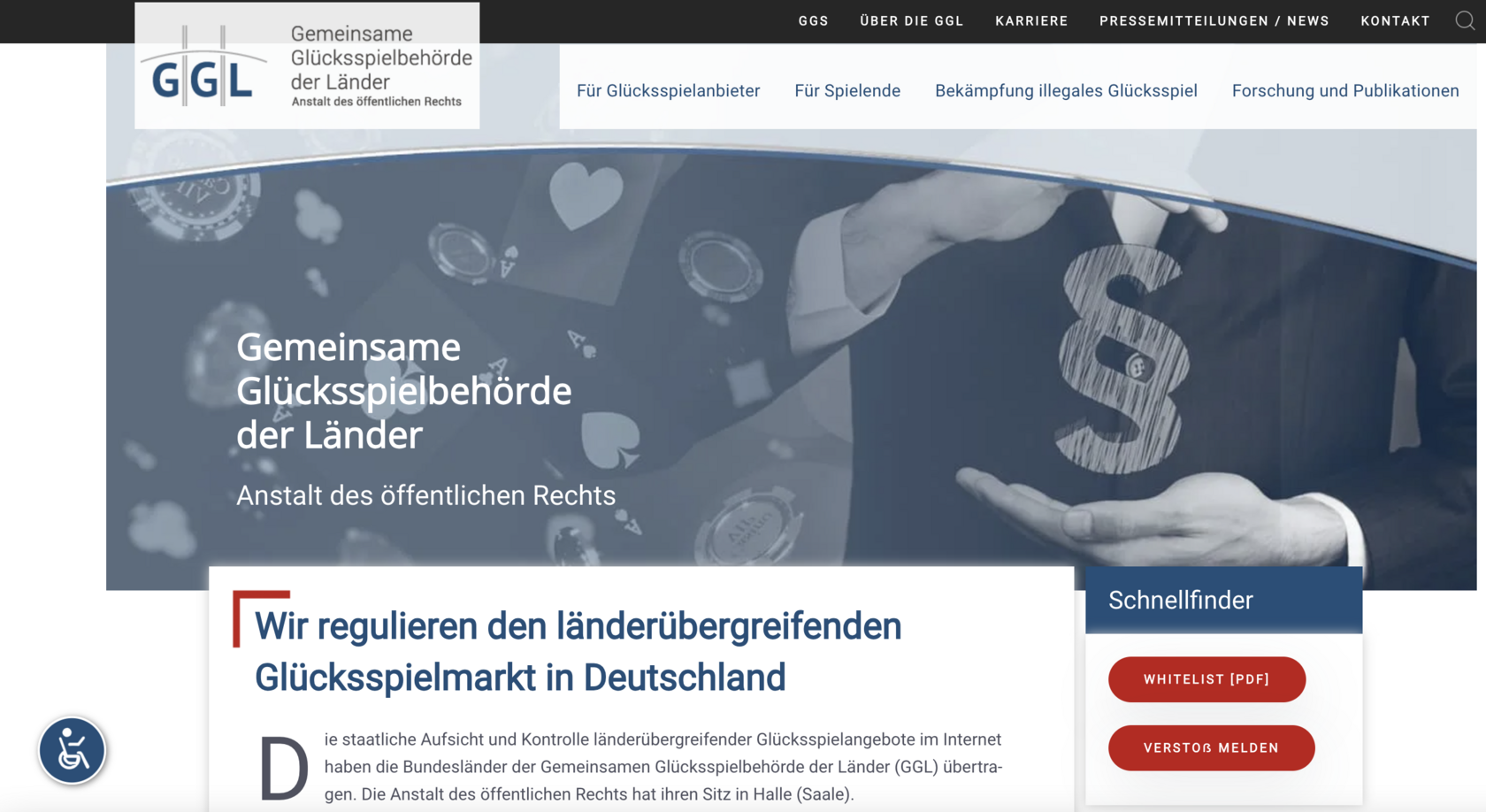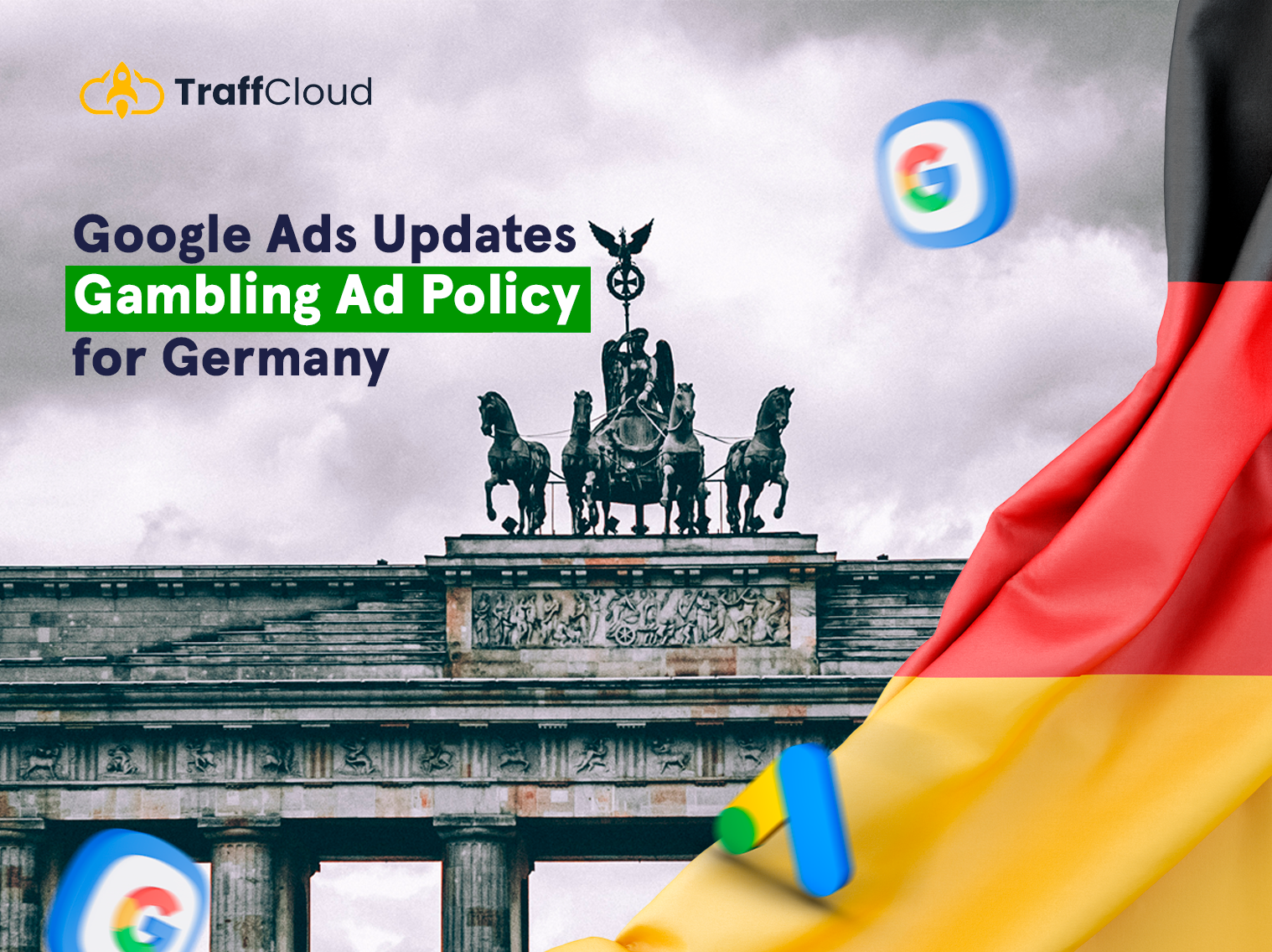Google has announced a significant update to its Gambling and Games policy for the German market, set to take effect on September 25, 2024. This new policy introduces stricter requirements for gambling operators and brokers wishing to advertise on Google in Germany. The update aligns with local laws, particularly Germany's Gemeinsame Glücksspielbehörde der Länder (GGL), the central regulatory authority for gambling.
Key Changes and Licensing Requirement
The most notable change in this update is that only operators and brokers licensed by the GGL will be eligible to apply for advertising certification. This certification is essential for promoting gambling products, as outlined in Google’s Gambling and Games policy.
The GGL, established as a unified authority to oversee gambling operations across German states, ensures a centralized and consistent approach to gambling regulation.
The GGL, established as a unified authority to oversee gambling operations across German states, ensures a centralized and consistent approach to gambling regulation.

Previously, Google allowed a broader range of gambling services to advertise on its platforms. However, this policy revision narrows the eligibility criteria, effectively disqualifying advertisers that do not meet the new GGL licensing standards.
This also affects services offering gambling aggregation, such as websites that promote offers from multiple operators on a single landing page. With the new rules in place, any service without a valid GGL license will no longer be able to run gambling-related ads.
Impact on Advertisers and Operators
The policy changes represent a significant shift in the online gambling industry’s approach to digital marketing in Germany. Advertisers without GGL certification must either pursue licensing or explore alternative advertising platforms.
Existing certifications for services that do not meet these requirements will be revoked on September 25, 2024, preventing these operators from running ads on Google platforms.
Existing certifications for services that do not meet these requirements will be revoked on September 25, 2024, preventing these operators from running ads on Google platforms.
This development means that operators already holding GGL licenses will benefit from a more controlled and less competitive advertising environment. Conversely, services that fail to meet the new criteria will lose a significant marketing channel, which may force them to shift strategies or seek compliance to regain access.

How Google’s Advertising Ecosystem is Affected
Google Ads, the primary platform for advertisers, functions on a complex system of policies and certifications designed to ensure compliance with local regulations. The Gambling and Games policy is a crucial aspect of this system, ensuring that all gambling-related advertisements adhere to legal requirements within the country where they are displayed.
With the new update, gambling advertisers targeting the German market will need to undergo a more rigorous certification process. They must first confirm their eligibility, which is now directly tied to GGL licensing.
Advertisers then need to submit detailed documentation about their operations, including proof of licensing, before they can proceed with campaigns.
Advertisers then need to submit detailed documentation about their operations, including proof of licensing, before they can proceed with campaigns.
This additional layer of oversight is designed to create a safer, more regulated online gambling space.
Challenges for Operators
While the policy update creates new opportunities for licensed operators, it also presents challenges for those without GGL certification. Obtaining a gambling license in Germany is a complex process that involves navigating stringent regulatory requirements.
With just 30 days’ notice before the policy takes effect, operators without licenses may find it challenging to complete the licensing process in time to avoid disruptions to their advertising activities.
For operators who do not already have GGL licensing, the options are limited. They can either pursue licensing, a process that involves considerable time and effort, or shift their focus to other, less regulated advertising platforms. The latter option could potentially impact their visibility in the competitive German gambling market.
